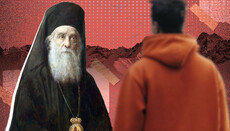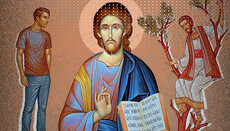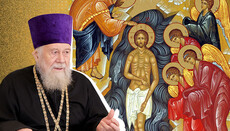“Today the entire Christian world is praying for Ukraine”
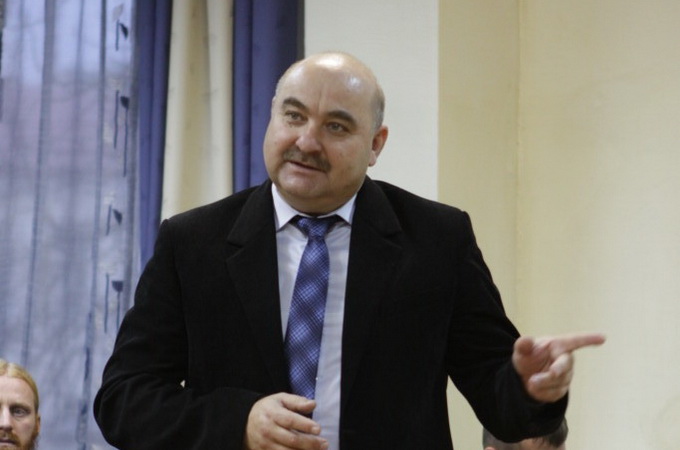
– How will you characterize problems in the religious sphere of Ukraine? For instance, church raiding – is anything similar possible in a European country, in Poland?
– Of course, the situation in Ukraine is just horrible! It is impossible even to fancy such events taking place in a normal European country. If a temple, where there are believers, where there is a priest, where people need spiritual guidance, is taken over... this is just a crime – not only against the public, but also against the Church, the Christian Church. All the values, on which the European community and European self-identification were created, are trampled upon.
If we raised a religious issue solely in the ecclesiastic environment, everything might be different. But at present the influence of politicians on the church life in Ukraine is so great that all theses splits have been brought about not from inside the Church but from external political center which caused such a decadence. Now the entire Christian world, and especially the Orthodox are praying, they suffer and their hearts are sore for what is going on in Ukraine. Because here the problem is not only the Church as an institution, it is the problem of every person, every believer.
This is a great tragedy of the Ukrainian people. If we keep destroying the canonical Church, what will we remain with? With schismatics? With those who have lost canonicity? Or with those who have never been to the Ukrainian land? This will lead to the situation when Ukraine, which should become a member of the European community, will not only remain outside this community, but will become home to terrible events that will negatively affect the existence of Churches and religious life in other countries.
– The Parliament of Ukraine is determined to adopt bills Nos 4128, 4511, 5309, being outspokenly directed against the Ukrainian Orthodox Church. How is Europe going to respond to the adoption of such laws?
– These bills are generally incomprehensible. I think they will not be accepted, as they return the times of the Soviet Union, and even worse. This is almost repression, which occurred in Stalin's times. What is now being proposed has nothing to do not only with the canonical system, but with normal humanitarian environment, with any normal democratic statehood.
Of course, in every state there are Churches that have different names. In America, even on one street there can be a dozen temples having different jurisdictions and this does not bother anyone. If the Church wants to build some structures, then let it build – but without the influence of the state. The state cannot influence the church life, including the appointment of bishops. This is determined only by the canonical rules of the Church, and in accordance with them candidates for bishops are nominate. If the lay people do this, if the state does it, the administrative authority, then we will generally lose the most important principle of the separation of the Church and the state.
Actually, there shouldn’t be such bills, because it discredits not only the authors of bills, but all Ukrainian authorities. The fact that they reach a stage of discussion means that these people do not understand anything either in democracy or in church life. These are just political aspirations to subordinate one more sphere of life to their influence. It is impossible ... If such an issue pops up in a democratic state – which jurisdiction to be affiliated to – then let them build their new communities, build their new temples, but they must not occupy other parishes and churches. This is simply unacceptable.
The solution must be completely different. If I want to create a community of some kind of jurisdiction, I do it with other people, build a church and register it in a certain jurisdiction. But to take it away? This is called proselytism. When not only the Christian faith is changed, but also jurisdiction. In fact, here (in Ukraine – Ed.) the Russian Orthodox Church had a very ancient historical tradition, therefore, I have no doubt that, perhaps, in some perspective, the ROC can raise the issue of autocephaly for the Orthodox living on the territory of Ukraine. But to do this by the hands of the state, the authorities... This will turn not only against the Church, but also against the state itself and against the believers. And in the end – against the initiators of such bills.
– What is an attitude of the Orthodox in Poland to the activities of members of the Kyiv Patriarchate and the Greek-Catholic Church in the Polish territory?
– We, as Orthodox Christians, have fears in this regard in Poland, because the influence of Ukrainian events is very negative. As for the representatives of the Kyiv Patriarchate, they too are active, come, participate in divine services, without invitation, permission. It's just a demonstration of some violent influence on the church life – not only inside Ukraine, but also in the territory of an independent state, which is Poland. I think this is unacceptable.
– You mean even in the Polish Orthodox Church, which is Local, some people are complaining about the use of the Church Slavonic language and relations with Moscow?
– This is basically absurd, because we, of course, conduct our liturgical life and liturgical practice in accordance with our tradition, and we do not want any intervention.
– But do you pray in the Church Slavonic language?
– Yes, the liturgy takes place in Church Slavonic, and sermons are pronounced depending on who lives in the given locality. Where Belarusians live – we speak in Belarusian, where Ukrainians – in Ukrainian, where Lemky – in Lemko. Where people demand in Russian, we do it in Russian. In Warsaw, where lots of people are brought up in Polish culture, the priest speaks in Polish. This does not cause any problems.
– At the same time is everybody comfortable with a service being performed in Church Slavonic?
– Yes, because it unites. Liturgy in Church Slavonic is the most important thing; this is done so that we do not lose the treasure – the Church Slavonic language. Mind that currently many in Catholic Churches introduce Latin, the Latin language, although it is more incomprehensible than Church Slavonic for us. Why? Because a person during the Liturgy is looking for something mystical, looking for a language that is not used in everyday communication. Therefore, for us, for all Orthodox Slavic Churches, the greatest treasure is the Church Slavonic language. They are beginning to realize this fact not only in our country, not only in the territory of the post-Soviet space, but also in the Balkans. Those who introduced the national language at the Liturgy now feel a certain lack of communication with other Churches. But the entire Orthodox world is one entity. And indeed, Church Slavonic is the most vivid symbol of our unity in the liturgical sense.
0
0
If you notice an error, select the required text and press Ctrl+Enter or Submit an error to report it to the editors.
Read also
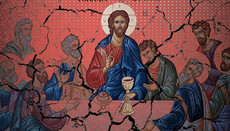
Damaged icon: a dogma on why we are not "biomass"
27 January 10:00

Theology of touch: Why God touched lepers and embraced enemies
21 January 10:00






